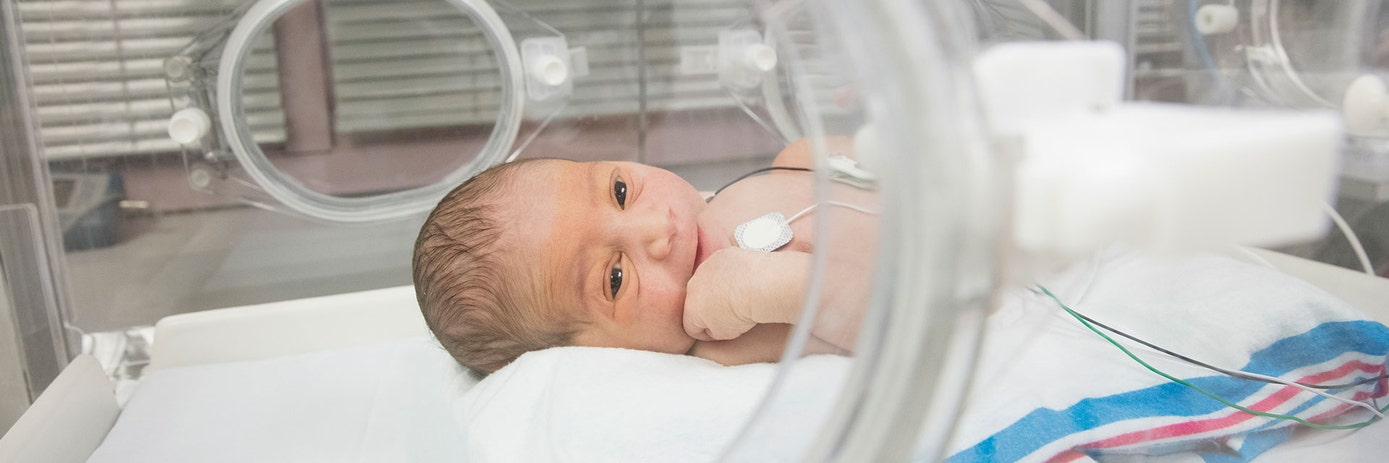Introduction
The neonatal intensive care unit (NICU) is a high-stakes environment where every minute counts. For critically ill newborns, rapid and accurate diagnosis can be the difference between life and death. Many of these infants present with complex, rare, or undiagnosed genetic conditions, leaving healthcare providers struggling to determine the best course of treatment. This is where ultra-rapid whole genome sequencing (WGS) is proving to be a game-changer.
By providing a comprehensive view of a newborn’s genetic makeup in a matter of days, ultra-rapid WGS is transforming the diagnostic process and helping to end the diagnostic odyssey for families.
The Challenge in the NICU
Newborns in the NICU often present with severe symptoms that could be caused by a wide range of genetic conditions. Traditional diagnostic methods, including targeted genetic testing or biochemical assays, can take weeks or even months to provide answers, leaving families in dilemma and delaying critical interventions. In some cases, conventional tests fail to yield a diagnosis at all, prolonging the uncertainty and adding to the emotional toll on families.
The term "diagnostic odyssey" describes the long, often fruitless journey many families undergo while seeking a diagnosis for their child’s condition. For infants in the NICU, this delay can lead to worsening outcomes or even death due to the rapid progression of their condition. This paves a path to introduce our ultra-rapid WGS, which is capable of delivering answers in days.
How Ultra-Rapid WGS Works
Whole genome sequencing involves decoding nearly all of an individual’s DNA, providing a comprehensive picture of their genetic information. Ultra-rapid WGS goes a step further by optimizing the sequencing process for speed while maintaining accuracy. Through advances in technology, automated analysis, and streamlined workflows, results can be delivered in a fraction of the time of traditional methods.
Once the sequencing data is obtained, bioinformatic tools analyze it to identify genetic variants that could explain the infant’s symptoms. The results are then interpreted by a multidisciplinary team of geneticists, neonatologists, and other specialists to determine the best treatment options. The ability to perform this entire process within a matter of days is a monumental shift in how genetic disorders are diagnosed in the NICU.
Impact on NICU Care
The benefits of ultra-rapid WGS in the NICU are profound:
- Faster Diagnosis: Ultra-rapid WGS can deliver results in 5-8 days, helping healthcare providers to determine diagnosis and initiate targeted treatments sooner. This is especially critical in conditions where early intervention can significantly improve outcomes.
- Precision Medicine: With a clear genetic diagnosis, treatment plans can be tailored to the specific needs of the infant. For instance, identifying a treatable metabolic disorder can lead to life-saving dietary modifications or enzyme replacement therapies.
- Avoiding Unnecessary Interventions: In the absence of a definitive diagnosis, infants may undergo a battery of tests and procedures, some of which may be invasive or risky. A rapid genetic diagnosis can prevent unnecessary interventions, reducing the burden on the baby and the family.
- Ending the Diagnostic Odyssey: Ultra-rapid WGS brings closure to families who have been searching for answers. Even when the diagnosis is a severe or untreatable genetic disorder, knowing the cause allows families to make informed decisions about care and helps in planning for the future.
- Cost-Effective Care: Although sequencing technology itself is costly, the early diagnosis and precise treatment it enables can reduce overall healthcare expenses by shortening hospital stays, preventing complications, and minimizing the need for additional testing.
Real-Life Success Stories
Several hospitals and research institutions have already implemented ultra-rapid WGS in their NICUs with remarkable success. In some cases, infants who were deteriorating rapidly were diagnosed and treated within days, leading to miraculous recoveries. For example, ultra-rapid WGS in conjunction with biochemical screening reported elevated levels of Propionylcarinitine (C3) on the biochemical screening and pathogenic variant in PDHA1 gene in a 3-day-old male presented to his physician with hypotonia, significant birth defects, and metabolic acidosis in just 53 hours.
The fast turn-around time allowed for an early detection and diagnosis in this child, which provided the healthcare providers with the ability to start with early intervention strategies in order to give this child the best possibility of an improved outcome. This chance would not have been possible without our lab’s quick turnaround time and comprehensive genetic analysis.
These stories underscore the potential of ultra-rapid WGS to not only save lives but to also offer hope to families during their most challenging moments.
The Future of Neonatal Care
As technology advances and the cost of sequencing continues to decline, ultra-rapid WGS is poised to become a standard tool in NICUs worldwide. Efforts are also underway to integrate this technology into broader healthcare systems, enabling faster diagnoses and better outcomes across various patient populations.
Conclusion
Our comprehensive ultrarapid Whole Genome Sequencing (WGS) offers a range of features, including mitochondrial genome sequencing, biochemical testing, cCMV analysis, CNV detection, and more. With a turnaround time of 5-8 days and flexible sample types, including dried blood spots, our service provides a convenient and efficient option for your needs. By helping to reduce the diagnostic timeline for complex genetic conditions in newborns from months to days, this technology is helping to end the diagnostic odyssey for countless families, offering hope when needed most.
As it becomes more widely available, ultra-rapid WGS has the potential to transform neonatal care and set a new standard for precision medicine in pediatrics.
This testing service has not been cleared or approved by the U.S. Food and Drug Administration. Testing services may not be licensed in accordance with the laws in all countries. The availability of specific test offerings is dependent upon laboratory location. The content on this page is provided for informational purposes only, not as medical advice. It is not intended to substitute the consultation, diagnosis, and/or treatment provided by a qualified licensed physician or other medical professionals.

































